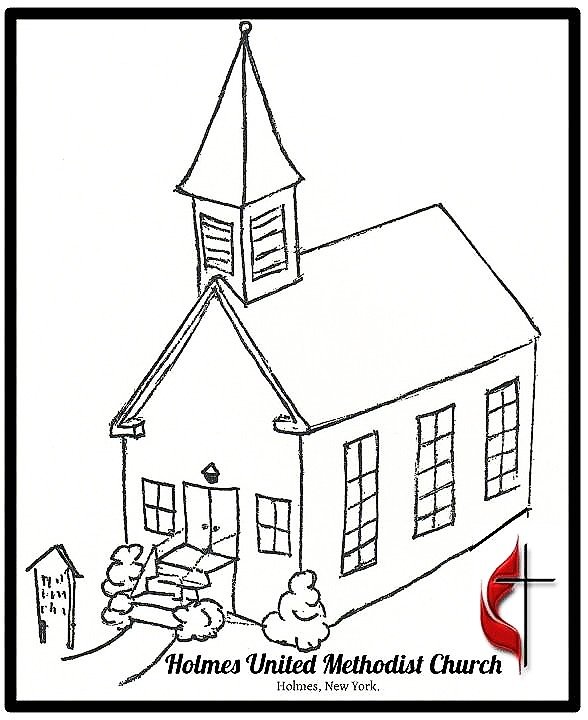Just like the earthquake this week, not all experienced it… not all witnessed the unusual events … likewise Jesus only showed himself to a number of his followers.
The Bible teaches that true followers of Christ will desire to tell others about Him and what He’s done in their lives. (See John 4:28-30, 39-42, and 1 John 1:1-4.). Sharing with others—sometimes called witnessing since we are witnesses to Christ—is a vital part of the Christian life.
God commands us and empowers us to be His witnesses (Matthew 4:19; Acts 1:8). Your testimony—or the story of how you came to trust in Christ—might not always be accepted, but through the Holy Spirit, you can receive power to live a victorious Christian life and serve Christ effectively. (See Ephesians 5:18and Luke 11:13.)
Here are a few suggestions that might help you lead others to Christ: Live a consistent Christ-centered life (Matthew 5:17); be a friend and a good listener; pray that the Holy Spirit will give opportunities to share with others and prepare the individual to receive God’s Word (John 16:7-11); and avoid arrogance and preachiness. Pray daily for the people on your prayer list and ask God for wisdom as you share Christ with them. (See James 1:5, 3:https://goingfarther.net/basics-of-christianity/telling-others-about-jesus/#:~:text=The%20Bible%20teaches%20that%20true,%3A1%2D4.).
We have the opportunity to open ourselves to Jesus in the same way Thomas did that day, as we break the bread and pour the juice. It is our moment to find ourselves in that upper room, to meet Jesus’ eyes and say, with Thomas, “I’m all in.” “My Lord, and my God.”
Doubt. Yes. We all have that experience. It’s like a spiritual drought, a starless night of the soul, a low tide when faith seems to have retreated forever. Nearly all of us experience these dry, dark, difficult times when God doesn’t seem real and it’s hard to keep going. I am so glad Thomas’ story is recorded in the Bible. I need to know that I am not alone in my questions. That Jesus will come to me anyway. Sometime, some way, in Jesus’ own way with me.
When Buechner says, “If there’s no room for doubt, there’s no room for me,” he is talking about the common human experience. It is in doubt, in our places of uncertainty, darkness, no answers, when the holy one comes to us – as Father, Creator, as Jesus in all his humanity, or in the fresh breath of the Spirit. God comes. Because God believes in us, God supports us, even when we have nothing left. God is the one who carries us, when we have nothing left, and carries us over to the other side, to what is next when we are finished here.
“Belief is not about intellectual assent, but about personal investment and commitment to a thing.
Today, doubt is that question which challenges the purely rational faith. We need it desperately! Jesus didn’t come to change our minds. Jesus came to change the world, from the heart. Doubt gets us out of our certainty into the questions of everyday life. Will I choose the way of Jesus in the space with no answers? Will I come to the well of Scripture and prayer again, even when doubt is my companion? Thomas did. He still showed up with the other disciples, to be with the memory of Jesus. And so Jesus came, in exactly the way Thomas needed him.
So how did this work for Thomas? The other disciples had encountered Jesus. He has shown them his hands, feet, side. They had renewed their relationship with Jesus in his new life after death. Did they understand it? Did it make sense? Were they certain of his physical presence? We don’t know. But the text indicates that they renewed their mutual trust with Jesus the living One.
Thomas wanted this same opportunity, and he said so – boldly. His statement here is very strong, almost demanding. I must see what you other disciples have seen, or I will not put my trust in him again. I was burned, we were all burned in our trust in him. The Romans killed him and he left us, without any of his promises fulfilled. I cannot re-enter that trust without reconnecting with Jesus.
He didn’t say that he didn’t believe what the disciples, his friends, were telling him. He was just being honest. He could not re-enter that kind of committed relationship without some evidence of its mutuality. He needed to know that Jesus was present for him, too. For him, he demanded a physical experience of the presence.
I have always found it interesting, though, that there is no indication that Thomas even touched Jesus. Jesus offered his hands, feet, side to be touched. But the offer seems to be brushed aside.
One of the most important principles of Biblical interpretation is this: we can’t hear what the stories of the Bible are saying until we hear them as stories about ourselves. We have to imagine our way into them.”
https://mttaborchurch.net/the-importance-of-doubt/






